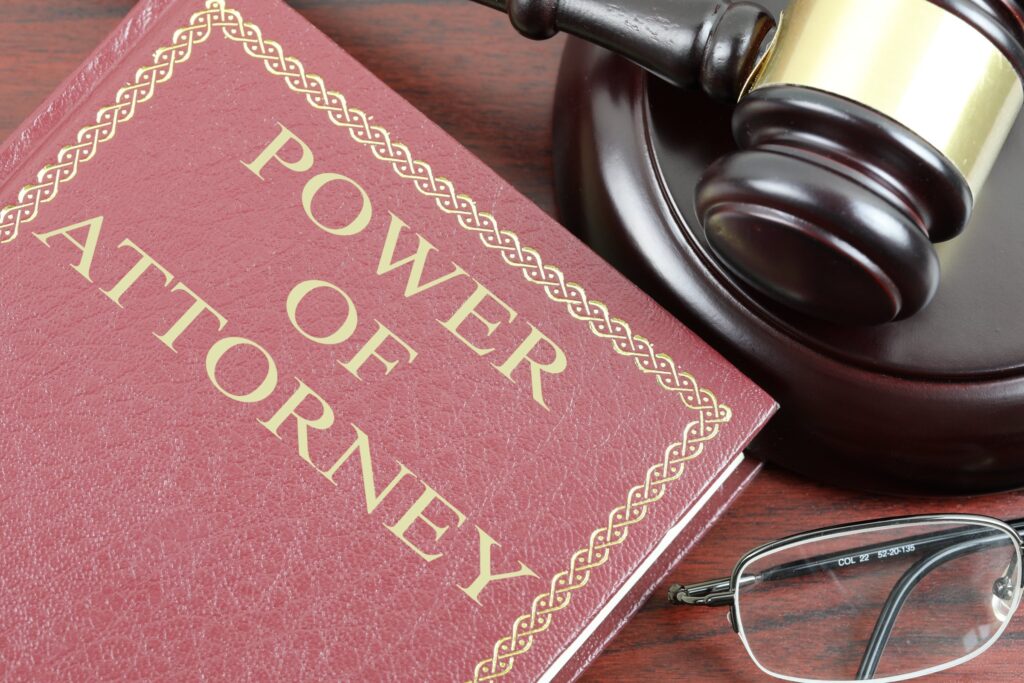A power of attorney (POA) allows you to designate someone to manage your affairs if you become unable to do so yourself. But do you need a lawyer to set up a POA, or can you do it yourself? Here’s what you need to know about getting legal help for powers of attorney.
Contents
What Is a Power of Attorney?
A POA is a legal document that gives someone else the authority to act on your behalf regarding financial, medical, or other personal matters. The person you designate is known as your agent or attorney-in-fact.
There are a few main types of POAs:
- General POA – Gives broad authority over most affairs.
- Limited or special POA – Specifies certain powers or limits their scope.
- Durable POA – Remains in effect if you become incapacitated.
The core function of any POA is to appoint someone you trust to handle matters if you’re unable to do so yourself. Reasons for needing a POA include injury, illness, cognitive decline, or other incapacity.
Can You Make a POA Yourself?
You don’t necessarily need a lawyer to create a valid POA. Many people use DIY options like online templates, legal self-help sites, or POA forms software.
However, there are some major caveats to the DIY route:
- State laws – Each state has specific POA requirements. If you don’t format or execute a DIY POA correctly, it could be invalid.
- Customization – Pre-made forms don’t allow tailoring for your unique situation. Errors or omissions could lead to problems.
- Disputes – DIY POAs may not hold up if challenged over interpretation or validity issues.
- Costs – While cheaper initially, DIY options don’t provide guidance on mistakes to avoid. Fixing problems later can incur greater costs.
Creating your own POA has risks. But with caution, you may be able to use a DIY method, especially for a simple, limited POA. Be sure to research your state laws thoroughly.
Benefits of Working with an Attorney
For many people, consulting an attorney to prepare a POA is the safest choice. Here are some key benefits:
Expertise for Complex Situations
Attorneys have specialized knowledge to handle intricate situations that DIY options can’t address appropriately, such as:
- Large or contentious estates
- Blended families and stepchildren
- Disabled beneficiaries with special needs
- Property held in trusts
- Business interests like LLCs or corporations
Customization and Compliance
Rather than a one-size-fits-all form, an attorney can draft a POA tailored to your unique goals and circumstances. They’ll ensure it’s legally compliant and minimizes any ambiguity.
Validity and Peace of Mind
Legal expertise provides greater certainty that your POA will hold up if challenged. This offers invaluable peace of mind knowing your wishes will be honored.
Guidance on Key Decisions
An attorney can advise you on important considerations like:
- Choosing between general, limited, or durable POA
- Selecting and briefing your agent
- Setting scope of authority and limits
- Planning for contingency scenarios
Cost Considerations
A lawyer-drafted POA costs more upfront than DIY options but can save you money in the long run by avoiding costly mistakes. Attorneys may offer flat fee or hourly billing. Costs vary based on where you live and POA complexity.

Alternatives and Further Considerations
While a POA offers flexibility, it’s not the only option. Depending on your needs, you may want to explore:
- Trusts – For more complex asset management scenarios.
- Guardianship – If lacking capacity to grant POA or make healthcare choices.
- State-specific laws – Each state regulates POAs differently. Be sure to review your own state’s requirements.
No matter how you create your POA, periodically review it to ensure it still reflects your wishes as circumstances change. You can amend or revoke a POA if needed.
Should You Get an Attorney for POA?
Here are some good rules of thumb on whether to seek legal help:
- If you have a simple estate and basic POA needs, DIY may suffice if you’re very cautious.
- For more complex estates, blended families, or special needs, an attorney’s expertise is usually worth the cost.
- Seek guidance if you have any doubts about correctly creating or using a DIY POA.
- Consult an attorney if you anticipate disputes by heirs or beneficiaries over POA creation or execution.
- Involve legal counsel if your DIY POA is ever legally contested or runs into compliance issues.
While not strictly required, odds are you’ll benefit from attorney involvement for your POA. For most people, the complexity, legal validity, and peace of mind are well worth the cost. Be sure to check your state’s specific POA laws and requirements as well.
Scott A. Bentley Attorney at Law in McHenry, IL is a debt relief and personal injury attorney dedicated to helping people in their time of need. He can assist in filing bankruptcy under the bankruptcy code or work with you through a personal injury case. His more than 25 years of experience provide him with the insight and knowledge you need when contending with difficult legal issues. Scott Bentley bankruptcy services stop: Creditor harassment, Lawsuits, Garnishments, Foreclosures, Repossessions, By filing for chapter 7 or 13 bankruptcy with Scott Bentley, you’ll also be able to create personal reorganization plans that serve to resolve individual bankruptcy issues. He and his staff are committed to providing you with dignified service and the respect you deserve. Just because you owe someone or some company money doesn’t mean you forfeit your rights. With Mr. Bentley you can be sure you will receive personalized attention and aggressive legal representation. The firm is proud to
